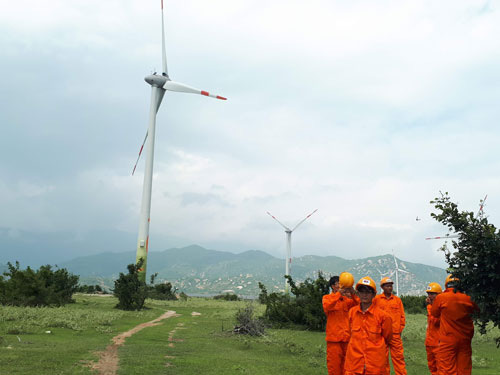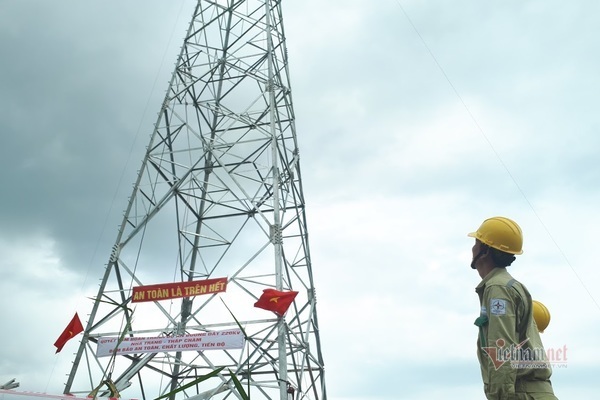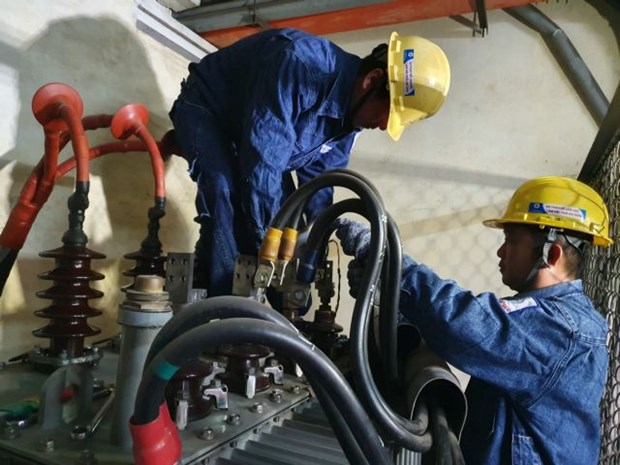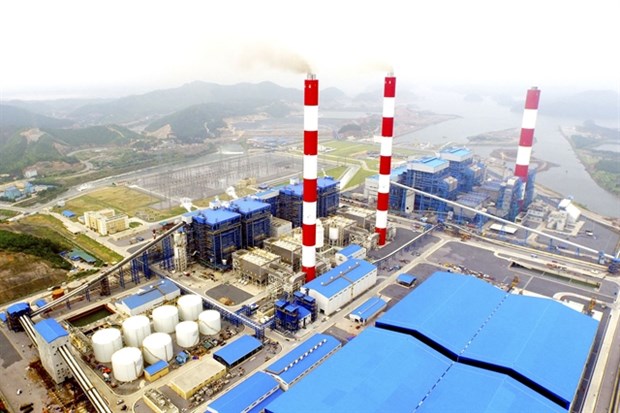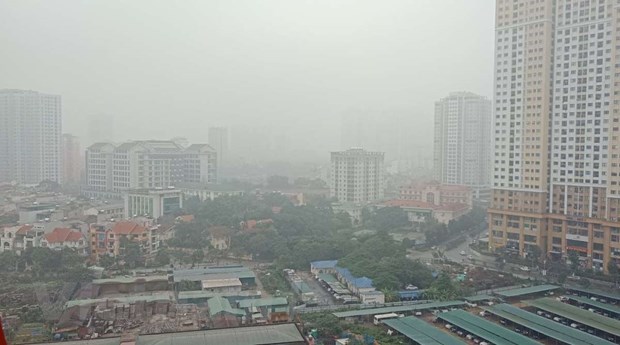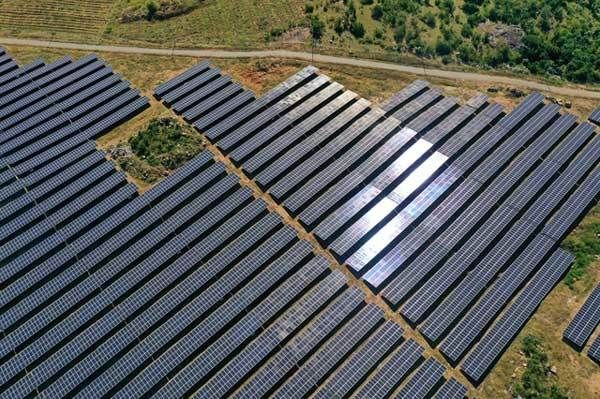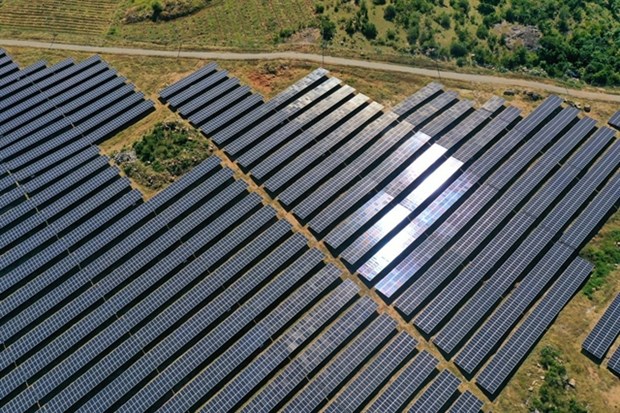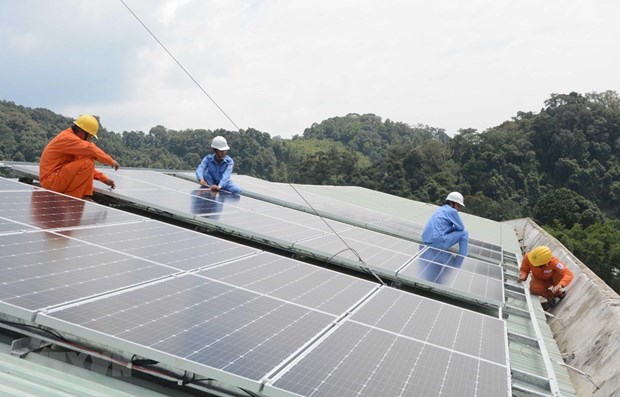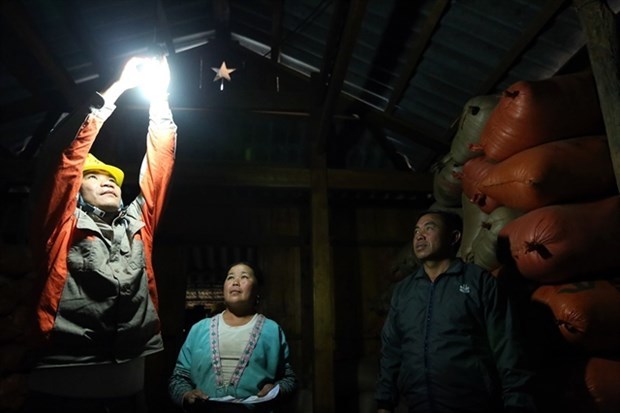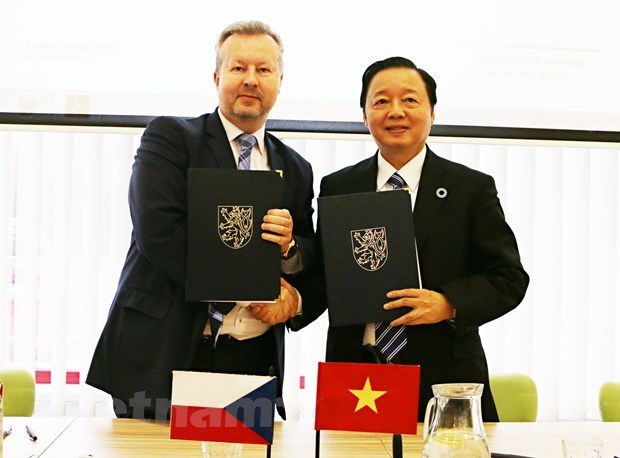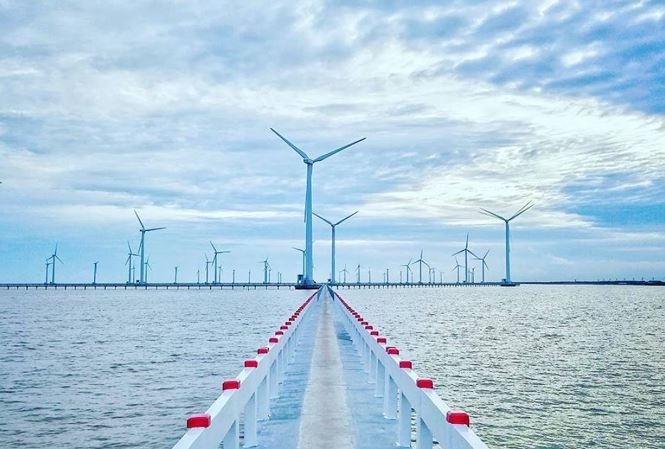- © Copyright of Vietnamnet Global.
- Tel: 024 3772 7988 Fax: (024) 37722734
- Email: [email protected]
renewable energy
Update news renewable energy
Financiers race to cash in on wind
 While Vietnam’s wind investors are in a race to reap incentives before the November 2021 deadline hits, concerns remain that a boom in solar power projects will lead to a reduction in capacities.
While Vietnam’s wind investors are in a race to reap incentives before the November 2021 deadline hits, concerns remain that a boom in solar power projects will lead to a reduction in capacities.
Investors develop wind power projects to enjoy good prices
 If Vietnam can create reasonable policies and keep strict control over the development, it may become an emerging market in the wind power industry.
If Vietnam can create reasonable policies and keep strict control over the development, it may become an emerging market in the wind power industry.
Investment slows in solar power projects as prices drop
 Investors are no longer rushing to pour money into solar power projects because the new solar power purchase price is considered unattractive.
Investors are no longer rushing to pour money into solar power projects because the new solar power purchase price is considered unattractive.
No electricity price increases in Vietnam until the end of Q2
 The Ministry of Industry and Trade has called for no increases in the electricity price until the end of the second quarter at the earliest to support businesses amid the novel coronavirus (COVID-19) outbreak.
The Ministry of Industry and Trade has called for no increases in the electricity price until the end of the second quarter at the earliest to support businesses amid the novel coronavirus (COVID-19) outbreak.
Vietnam to reduce dependence on coal
Vietnam will reduce the total capacity of coal-fired thermal power plants from 2020 until 2030, according to the National Steering Committee for Electricity Development.
Game changer for the energy arena
 Vietnam has recently created several favourable policies, including the Politburo’s Resolution No.55-NQ/TW on the orientation of Vietnam’s national energy development strategy to 2030 with a vision towards 2045.
Vietnam has recently created several favourable policies, including the Politburo’s Resolution No.55-NQ/TW on the orientation of Vietnam’s national energy development strategy to 2030 with a vision towards 2045.
Renewable energy poised to attract private investors: VBF
 An energy strategy that focuses on renewables, natural gas, energy efficiency and battery storage will attract private sector investment, the Vietnam Business Forum (VBF) said in a report.
An energy strategy that focuses on renewables, natural gas, energy efficiency and battery storage will attract private sector investment, the Vietnam Business Forum (VBF) said in a report.
Discussion urges smarter energy choices for sake of human health
 A discussion in Hanoi on February 25 called for smarter energy choices, given the impacts of coal power generation on air quality and air pollution’s influence on human health.
A discussion in Hanoi on February 25 called for smarter energy choices, given the impacts of coal power generation on air quality and air pollution’s influence on human health.
Vietnam encourages private investment in energy: Politburo
 The Politburo will encourage all economic sectors, especially private businesses, to invest in energy projects, Party General Secretary, President Nguyen Phu Trong has said.
The Politburo will encourage all economic sectors, especially private businesses, to invest in energy projects, Party General Secretary, President Nguyen Phu Trong has said.
VN Industry Ministry no longer keen on bidding mechanism for solar power price
 The Ministry of Industry and Trade (MoIT) has had a change of heart on the bidding mechanism for solar power tariffs in Vietnam.
The Ministry of Industry and Trade (MoIT) has had a change of heart on the bidding mechanism for solar power tariffs in Vietnam.
Strategy aims to ensure national energy security
 The National Energy Development Strategy by 2030, with vision to 2045 aims to ensure national energy security, which serves as a foundation for growth.
The National Energy Development Strategy by 2030, with vision to 2045 aims to ensure national energy security, which serves as a foundation for growth.
Made in Vietnam Energy Plan 2.0 to debut next week
 The Vietnam Business Forum will roll out next week the second edition of the Made in Vietnam Energy Plan (MVEP 2.0).
The Vietnam Business Forum will roll out next week the second edition of the Made in Vietnam Energy Plan (MVEP 2.0).
Challenges hinder development of renewable energy
 Renewable energy has emerged as one of the most preferred sectors for investment in Vietnam,but the development of such projects has been hampered by a number of challenges, according to a survey by Grant Thornton,
Renewable energy has emerged as one of the most preferred sectors for investment in Vietnam,but the development of such projects has been hampered by a number of challenges, according to a survey by Grant Thornton,
ADB provides loan for 50MW solar power plant in Tay Ninh
 The ADB has signed a 37.8 million-USD loan deal with TTC Energy Development Investment JSC (TTC Energy) to provide long-term financing to develop and operate a 50-MW photovoltaic solar power plant in Tay Ninh.
The ADB has signed a 37.8 million-USD loan deal with TTC Energy Development Investment JSC (TTC Energy) to provide long-term financing to develop and operate a 50-MW photovoltaic solar power plant in Tay Ninh.
Power supply to be ensured next year
 Power supply for production and domestic consumption in 2020 would be ensured, according to the Ministry of Industry and Trade (MoIT).
Power supply for production and domestic consumption in 2020 would be ensured, according to the Ministry of Industry and Trade (MoIT).
A solution for solar power development
 Vietnam has offered a very high price for solar power to attract investment in this energy segment, but the country now has to recalculate the pricing to ensure sustainable development for this renewable energy.
Vietnam has offered a very high price for solar power to attract investment in this energy segment, but the country now has to recalculate the pricing to ensure sustainable development for this renewable energy.
Vietnam, Czech Republic step up environmental cooperation
 Vietnam and the Czech Republic will enhance environmental collaboration under an action plan for cooperation during 2020-2025 signed between the two Ministers of Natural Resources and Environment in Prague on December 13.
Vietnam and the Czech Republic will enhance environmental collaboration under an action plan for cooperation during 2020-2025 signed between the two Ministers of Natural Resources and Environment in Prague on December 13.
Actions advised for Vietnam to lure investors amid energy crunch
 Legal or regulatory obstacles with a low level of certainty and issues concerning grid access for private projects, are the most pressing to private investment.
Legal or regulatory obstacles with a low level of certainty and issues concerning grid access for private projects, are the most pressing to private investment.
Auction could determine future of solar initiatives
 After months of uncertainty over the policy, the much awaited next round of purchase prices in solar power may be set through auction instead of enjoying the same feed-in tariff required elsewhere.
After months of uncertainty over the policy, the much awaited next round of purchase prices in solar power may be set through auction instead of enjoying the same feed-in tariff required elsewhere.
Developing renewable energy in Vietnam: Through the lens of equality and sustainability
 While Vietnam is facing many challenges in producing electricity, renewable energy is emerging as the tipping point for advancing development that is inclusive and sustainable in the country.
While Vietnam is facing many challenges in producing electricity, renewable energy is emerging as the tipping point for advancing development that is inclusive and sustainable in the country.

